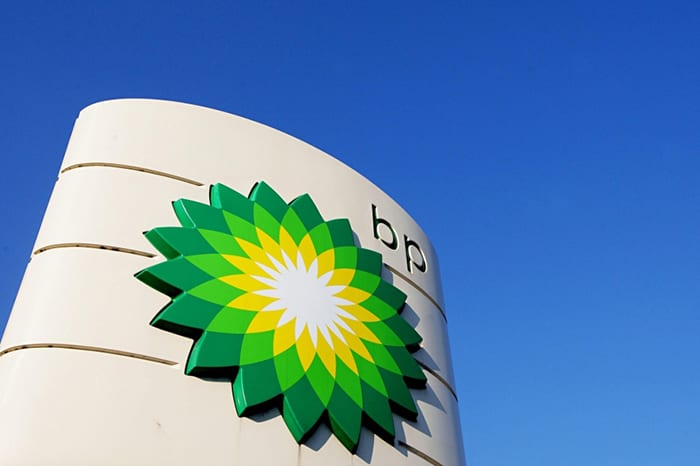(Market Watch) BP PLC said Tuesday its profit dropped by 12% in the first quarter due to a weaker oil price environment at the start of 2019, echoing anemic quarterly results recently reported by other Big Oil companies.
U.K.-based BP said its replacement cost profit–a number analogous to the net income that U.S. oil companies report–was $2.1 billion for the quarter ended March 31, compared with $2.39 billion during the same period last year.
Stripping out one-off items, its underlying replacement cost profit, BP’s preferred metric, fell 8.8% to $2.4 billion. That was slightly ahead of a company-compiled broker forecast that had predicted an underlying replacement cost profit of $2.3 billion for the first quarter.
BP’s shares were up 0.8% in early trading in London.
The company’s results come as the world’s other major oil-and-gas companies have reported underwhelming first-quarter earnings. U.S.-based Exxon Mobil Corp. and Chevron Corp., along with France’s Total SA, all reported profit declines for the first quarter. Dutch-Anglo oil giant Royal Dutch Shell PLC is set to report later this week.
The first quarter started with weaker oil prices than the year prior, with Brent–the global oil benchmark–averaging $63 a barrel, compared with $67 a barrel in the first quarter of 2018.
Oil prices plummeted by around 40% in the fourth quarter of last year on the back of a burgeoning global supply glut. But prices have staged a recovery since the start of the year–with Brent climbing back more than 30%–amid renewed geopolitical risks to supply and production cuts led by the Organization of the Petroleum Exporting Countries.
“We produced resilient earnings and cash flow through a volatile period that began with weak market conditions and included significant turnarounds,” BP Chief Executive Bob Dudley said in a statement. He added that the company remained committed to capital discipline and efficient project execution.
The company said it was continuing to integrate the near $11 billion of U.S. onshore oil-and-gas assets acquired from BHP Billiton Ltd. last year. BP took control of the assets in March.
BP said its upstream oil production rose 2% year-over-year, to 2.7 million barrels a day, aided by the BHP acquisition. The company has also started production at three new upstream projects, in Trinidad, Egypt and the Gulf of Mexico.
BP has been getting closer to its target of returning to production levels last seen before the company’s Deepwater Horizon oil spill in the Gulf of Mexico nearly nine years ago. BP said payments related to the 2010 disaster–the worst offshore oil spill in U.S. history–amounted to $600 million in the first quarter. The company’s landmark $20 billion settlement with the U.S. government in 2015 requires the oil giant to make annual payments of around $1 billion through the end of the next decade.
BP on Tuesday raised its quarterly dividend for shareholders to 10.25 cents a share, up 2.5% year-over-year but in line with recent quarters.



